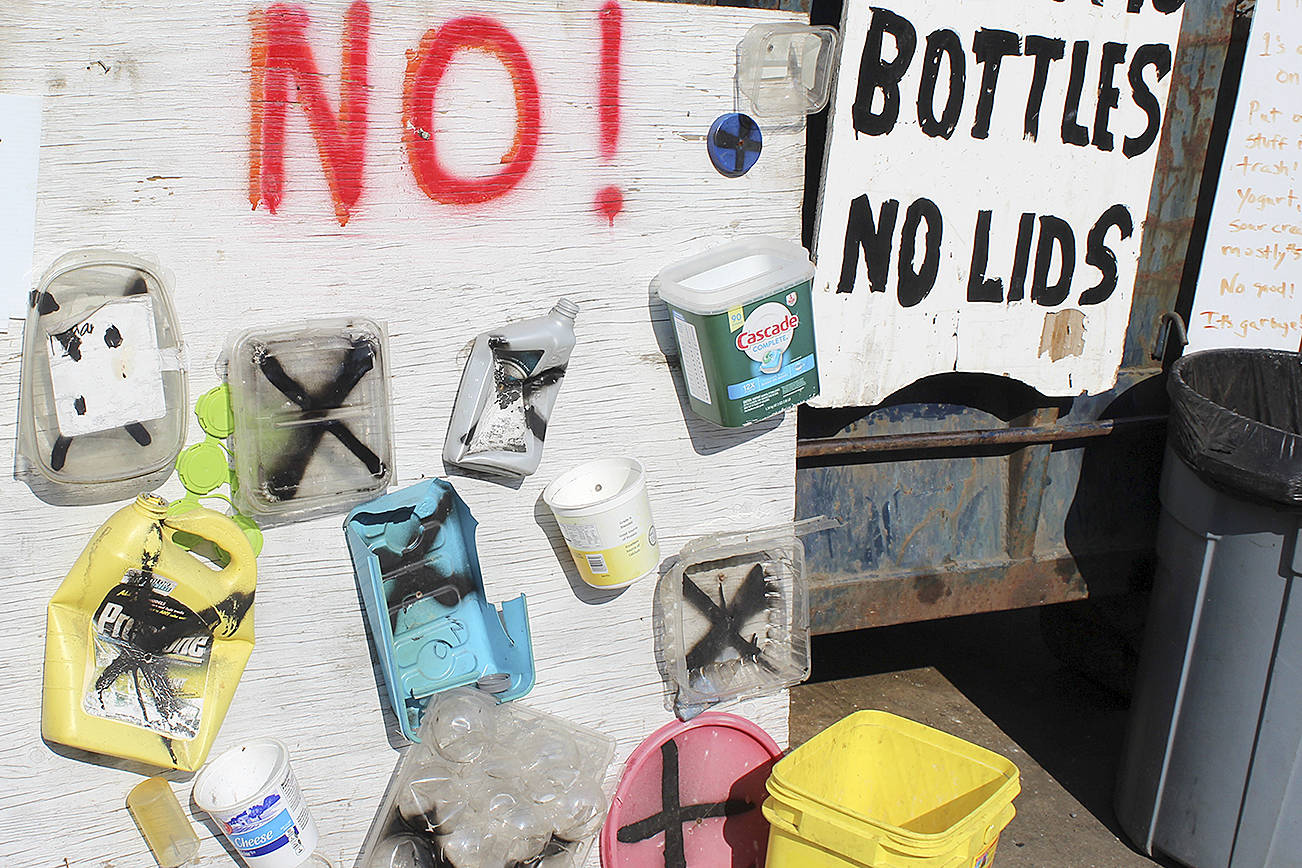A restriction on the types of plastic containers accepted at Island County Solid Waste recycling facilities goes into effect Saturday, Aug. 18.
Only plastic bottles, tubs and jars labeled with the recycling code No. 1 and No. 2 will be accepted, Island County officials announced Monday. Clear bottles used for water, juice and soda, as well as opaque milk jugs are among No. 1 and No. 2 containers. Lids and caps should be removed.
Plastics with the codes #3 through #7 won’t be allowed.
“We are adapting to global market conditions which are having a direct impact locally, and we hope to be able to take more types of plastics in the future as markets develop for them,” said Public Works Director Bill Oakes.
The restriction applies to people in unincorporated parts of the county who bring their own recyclables to county facilities.
Oak Harbor and Coupeville residents who get curbside service aren’t affected, said Joantha Guthrie, manager of the county solid waste division.
“The trash from Oak Harbor and Coupeville comes through our county transfer station, but the recyclables do not come through our system,” Guthrie said. “Their recyclables are handled by Island Disposal and go to a different material recovery facility than the rest of Whidbey Island recyclables.”
Until recently, China was the main importer of the world’s recyclables. In an effort to improve their environmental quality, China has imposed strict limitations on the import of post-consumer recyclable commodities, known as the Green Fence.
It’s banning the import of all but the cleanest, most tidily organized bales of reusable rubbish and rejecting those that are contaminated with unwanted material.
The limitations have disrupted recycling markets across America but most significantly along the west coast, Oakes said.
Every plastic container or bottle has a recycling symbol. It appears on the bottom of the container as a number from 1 to 7 surrounded by three arrows that form a triangle. With more and more recycling centers limiting plastics, it’s predicted landfills will be filling with even more plastic material.
Island Recycling in Freeland, a private firm, already posted signs stating it only accepts plastic containers stamped with No. 1 or No. 2.
Containers not accepted are displayed under the word “no” painted in red with a big “x” through each one — such as those used for cottage cheese, dishwasher pellets, motor oil and clear take-out “clamshell” containers.
Island Recycling contracts with the county to pick up and process all recycled materials from the county-run recycling facilities and sells it to various outlets. It runs its own center where people can also bring their own glass bottles, newspapers, cans, aluminum, white office paper, cardboard and material and toss it into separated areas and bins.
Signs explaining the new plastic policy will soon be displayed at county facilities, Guthrie said.
Consumers need to pay attention to the types of plastics they are leaving at recycling bays, officials emphasized.
A practice known as “wish-cycling” — putting items in recycling that are prohibited — contaminates recycling streams and could lead to rejection of county shipments by the processor, Oakes said.
“If we want it recycled, we need to recycle correctly,” he said. “Recyclables should always be empty, clean, dry, and if plastic, (be) a No. 1 or No. 2 bottle, tub, jug or jar.”
No other material accepted for recycling, such as mixed paper, newspaper, glass, tin or metal is affected by the change.



